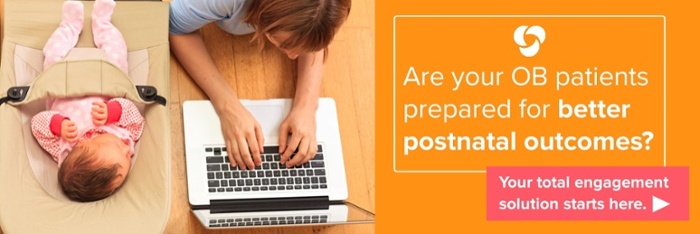The Women’s Health Services team at Hartford Hospital is committed to providing a top-notch experience to our expecting parents and families with new babies. We believe that education is critical to this goal because it gives our patients the information they need to become confident and empowered parents.
Not only does solid education mean better outcomes for our patients, research shows it also leads to higher levels of satisfaction. And that’s good for business, as well. Under managed care, satisfaction has a real and important impact on reimbursement. The Centers for Medicare & Medicaid Services (CMS) rewards hospitals with incentive payments or penalizes them with reduced reimbursements, based on HCAHPS performance scores.
New mothers have been described as the Chief Medical Officers of their families, making 80% of the healthcare decisions. We want to strengthen our bonds with new moms and give them the education they need to make informed decisions for themselves and their families. Plus, a more satisfied new mom is more likely to recommend Hartford Hospital to a friend and come back for another pregnancy or for future healthcare needs.
We use digital and in-person strategies to deepen our relationships and educate expectant and new families. We have a robust digital patient education program that delivers targeted, evidence-based content to new and expectant parents and draws them to our in-person classes and events. With 95% of adults using smartphones, we know that mobile messaging is an effective way of reaching out to patients. We send emails every week based on each patient’s due date or their child’s age.
That said, face-to-face exchanges remain valuable in educating, supporting and building connections with our newest families. We offer a range of classes for expecting and new parents and their families. We need to make sure that our families know what we offer and provide guidance around what classes best fit their needs. Maximizing enrollment in classes is important to the hands-on education and confidence building that these sessions provide to our patients. It’s also not efficient or cost-effective for us to run classes that are not full.
We’re a small team, so leveraging our patient education emails to promote classes is an efficient way to reach out and build on the connection that is already in place. Information about classes and the importance of attending them is a key component of our weekly email content. The curated, evidence-based content in the emails also reinforces what our patients are learning at appointments and in classes. And we can easily send out reminder messages about classes with links that make it easy to enroll on the spot.
We’ve found that our 2-pronged strategy makes a difference. Patients appreciate our digital messaging and enroll in classes more frequently when we push information about them at the right time during their pregnancy or their child’s early life. In June of 2019, we had 45 people click to learn more information about our baby-signing class; and 170 people clicked the link to our breastfeeding support group between April and June of 2019. In fact, 3 of our top 5 links during that same time period took our subscribers to class and event information pages.
As a nurse and an educator, my mission is to make sure that our patients are prepared and empowered on their journey into parenthood. Hartford Hospital’s combination of digital education and in-person classes are key to providing an optimal patient experience and forming the relationships that mean so much to us and our patients.








